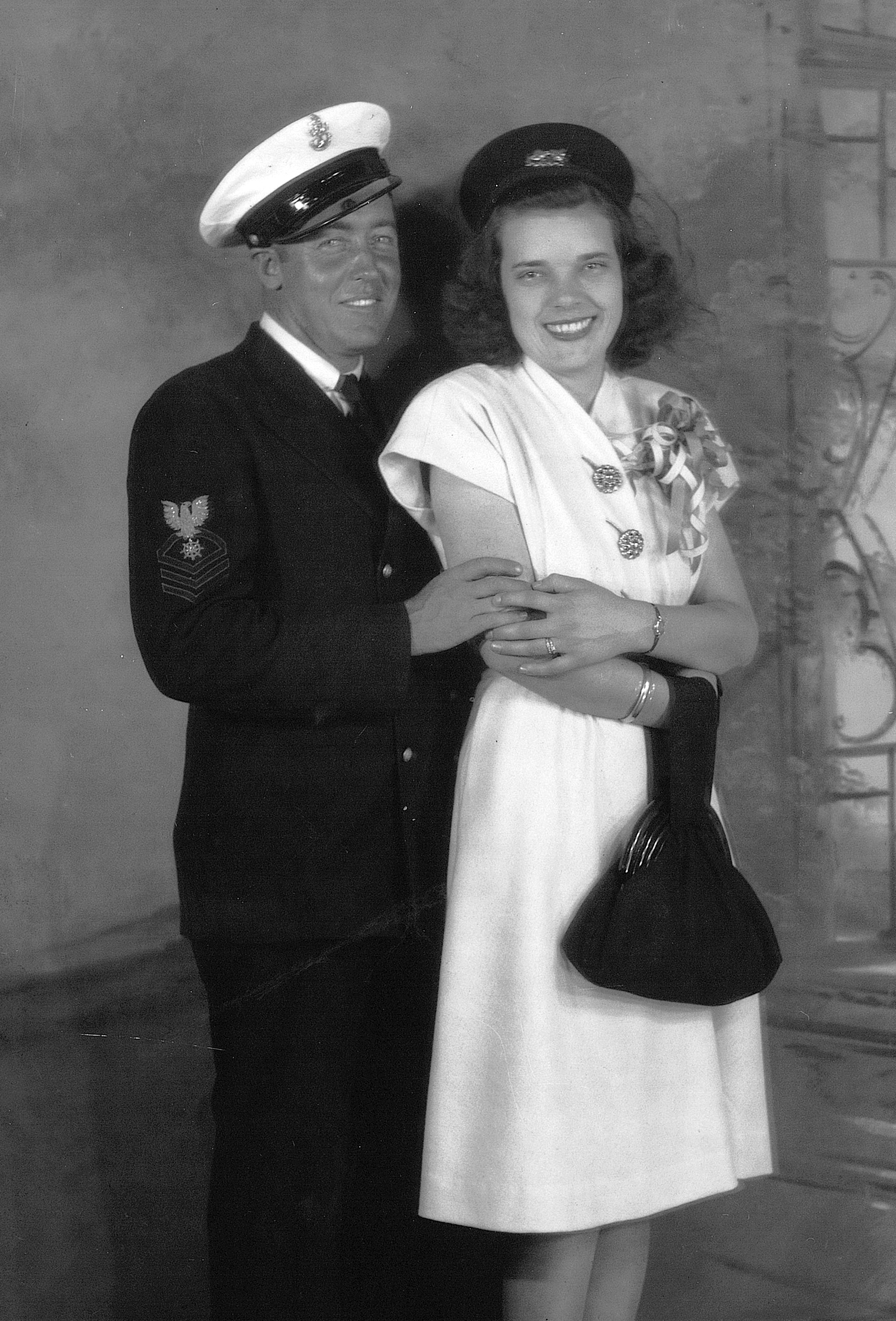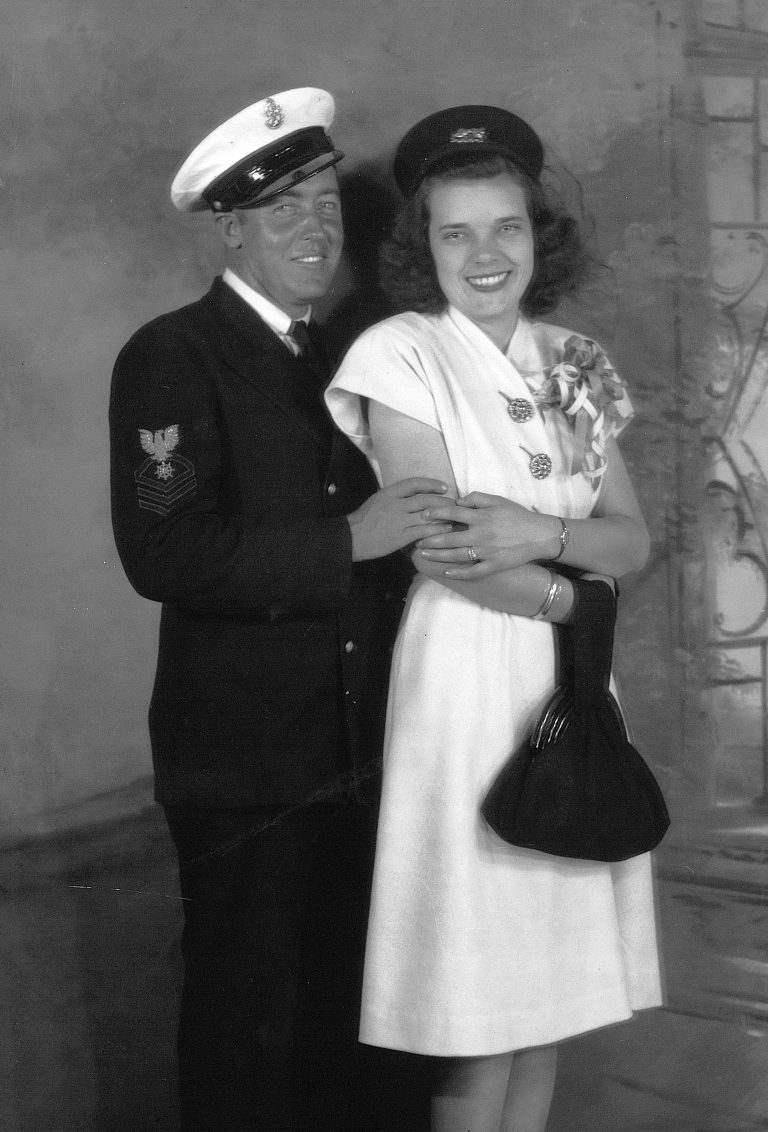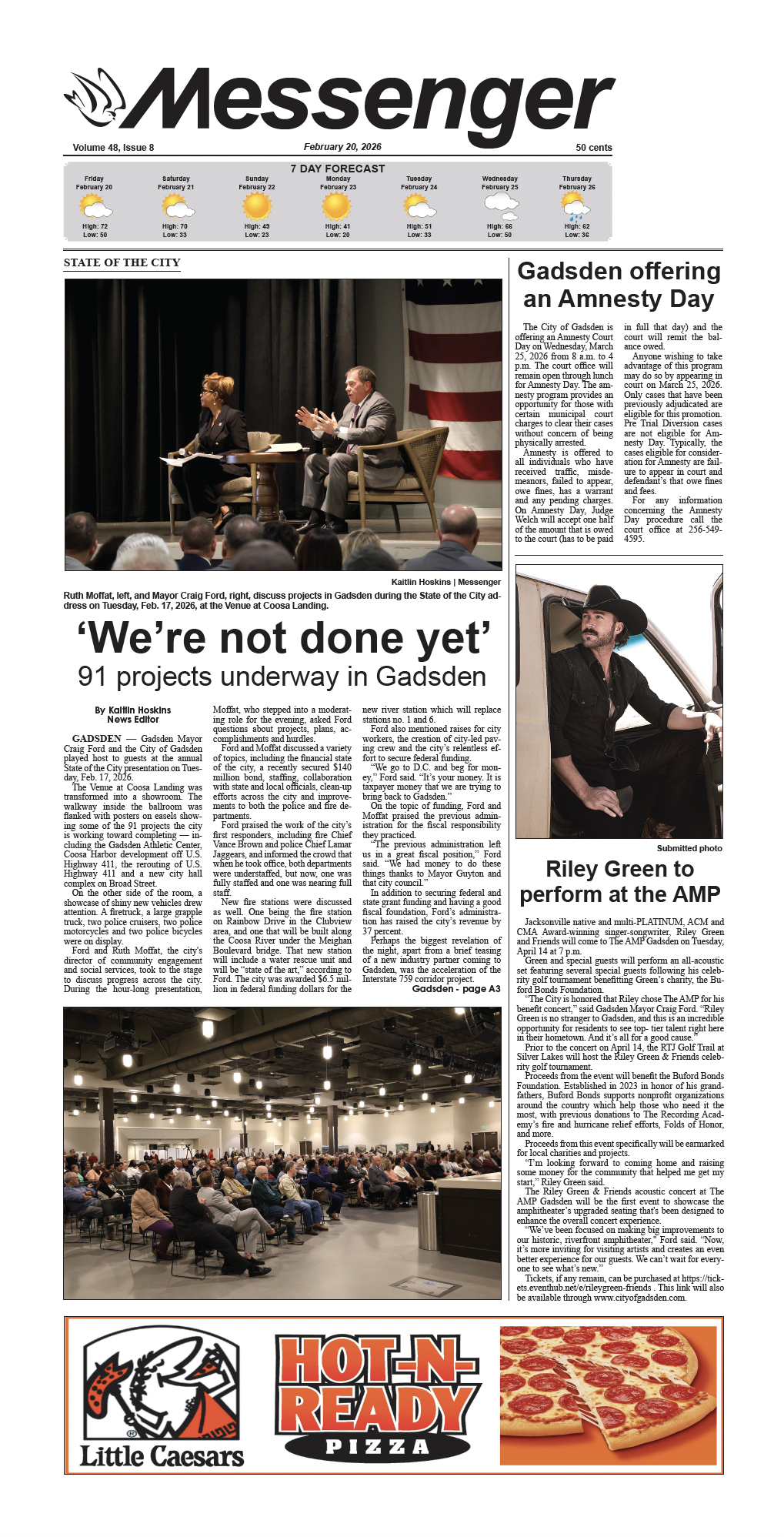By Sarrah Peters
News Editor
The only remaining Etowah County Pearl Harbor survivor passed away last week. Charles Webb was 96.
“Hardly a day passes that I don’t think about it,” Webb told The Gadsden Times for the 70th anniversary of the battle.
At the time of the attack, Webb was a 23 year old quartermaster third class. At 7:48 a.m. Hawaiian time, when the attack started, Webb was below deck shaving. He did not finish shaving for two or three days, according to his son Larry Webb. Webb said the attack ended at 9:45 a.m. It lasted 110 minutes.
Webb recalled thinking that someone would be in trouble for firing the machine gun, before he was called to his station.
Gunner mate Leslie Vernon Short saw the planes. As the planes got closer he could see the big red sun, and knew they were Japanese. Knowing something was wrong, he began to fire his machine gun and brought down the first Japanese plane, but the torpedoes had already been dropped. Short later received a medal.
The U.S.S. Oklahoma, stationed next to Webb’s ship, the U.S.S. Maryland, received the brunt of the attack. The Oklahoma sank, blocking the Maryland from torpedoes. Webb’s shipmates spent two days cutting out survivors of the Oklahoma whom they could hear tapping.They saved 32 people during the two days they spent getting sailors out of the Oklahoma, but more than 400 died.
Some of the Maryland’s men were aboard the Oklahoma for Catholic Mass. One man from the Maryland that went to the Mass survived by crawling out of a porthole. Webb recalled telling the man that he was too large to fit through the small window. The man replied that if Webb had been as scared as he was, Webb could have crawled through the porthole just as easily.
The Maryland was hit by two bombs and a lot of machine gunfire, but only lost seven men.
Webb couldn’t see the attack from his station below deck, but heard the descriptions of those on deck over his headphones.
Fires were burning everywhere because oil on the water caught on fire. Many soldiers were burned before they could escape the water.
The Japanese attack killed just over 2000 of the Navy’s men. Total U.S. deaths were 2403. The first wave included 183 Japanese aircraft; the second wave had 170 planes. Eight U.S. Battleships were damaged, and eight other ships were sunk or damaged.
After leaving the service, Webb collected Pearl Harbor articles and photos. The most heavily damaged ship was the U.S.S. Arizona. Final resting place for 1102 of the 1177 seamen killed. The ship was not raised and became the focus of the Pearl Harbor Memorial, which Webb visited twice. Forty-nine years after the battle his children Larry Webb and Laura Zaremba visited the memorial with Charles. The calm water began bubbling as Charles approached the Arizona’s final resting place.
Every Dec. 7 he would say at supper how glad he was to be there and alive.
Webb related the stories of the fear after the attack.
Reports of Japanese landing on the other side of Oahu surfaced, and Marines went to search the area. Another report said that the drinking water was poisoned so iodine was poured in to rid it of the toxins. This made the water red, and hard to drink. But it was the only water they had, so they learned to drink it.
Webb was convinced Pearl harbor was a set up. The amount of ships tied in the harbor was unheard of, but no carriers were present. Shortly after, carriers were used to win the Battle of MidwayAt the 70th anniversary, Webb was the only one left in Etowah County that survived the attack. At the 50th anniversary 8 survivors lived in the area. Webb visited the Pearl Harbor Memorial twice and laid the wreath at the 50th anniversary ceremony in Alabama.
The bombers, torpedo planes and fighter planes began at 7: 48 a.m. Hawiian time.
The USS Maryland lost only 7 men. Fires were burning everywhere.
“I was a lucky sucker. So many men lost their lives and I survived when so many didn’t.
Webb was transferred to the USS Millicoma in April 19443 and was part of 6 island invasions.





